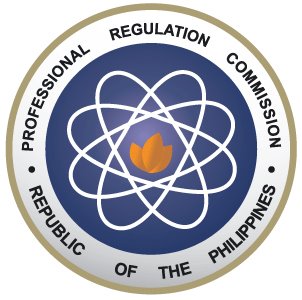Introduction
The Philippine Electrical Engineering profession is governed primarily by Republic Act No. 7920, also known as the “New Electrical Engineering Law.” To support and effectively implement its provisions, the Board of Electrical Engineering (BEE) issued Board Resolution No. 18, Series of 1995, which sets the Implementing Rules and Regulations (IRR) of the said law.
One of the most important provisions in the IRR is Rule 9, which outlines the interpretative and opinion-forming authority of the Board. This rule affirms the Board’s quasi-legislative power, essential for ensuring consistent, authoritative, and professional application of the law and its ethical framework.
Rule 9 Explained: Interpretation and Opinion Power of the Board
1. Quasi-Legislative Authority
Under Rule 9, the Board of Electrical Engineering is empowered to exercise quasi-legislative (rule-making) authority. This means the Board is not only limited to licensing and regulation but can also create official interpretations, clarifications, and opinions concerning:
- Republic Act No. 7920,
- The IRR of RA 7920,
- The Code of Ethics for Electrical Engineers,
- Other board issuances, policies, and circulars.
This interpretative function is critical in addressing ambiguities or novel situations in engineering practice that may not have been fully anticipated by the original text of the law.
2. Coverage of the Interpretative Function
The Board's authority extends to:
- Clarifying licensing requirements (e.g., qualifications for Professional Electrical Engineers),
- Defining scopes of practice for Professional Electrical Engineers (PEEs), Registered Electrical Engineers (REEs), and Registered Master Electricians (RMEs),
- Determining regulatory compliance of engineering documents, designs, and signatories,
- Issuing positions on ethical dilemmas and conflict of interest cases,
- Providing guidance on board resolutions and prior legal issuances related to the profession.
This ensures legal uniformity and regulatory consistency throughout the Philippine electrical engineering profession.
3. Official Channel of Issuance
As per Rule 9:
- Any official opinion or interpretation from the Board must be formally issued through:
- The Chairman of the Board,
- A duly authorized Board Member, or
- The Secretary of the Professional Regulatory Boards (PRBs),
- If authorized by the Chairman.
This process ensures legitimacy and formality in the issuance of opinions and prevents conflicting or unauthorized interpretations from influencing public and professional practice.
4. Importance to Practicing Electrical Engineers
The interpretative role of the Board is particularly valuable in the practical implementation of electrical engineering laws, especially in the following areas:
- Project design and execution: Engineers often require clarification on whether a specific task falls within their license scope.
- Interdisciplinary disputes: When other professions intrude on electrical engineering functions (e.g., architects preparing electrical plans), Rule 9 gives the Board authority to issue a clarifying position.
- Compliance and safety audits: Interpretation of compliance requirements for installation, grounding, testing, and documentation may be needed.
- Ethical queries: Rule 9 supports the resolution of ethical complaints by defining the intent and application of ethical standards.
5. Legal and Professional Weight
Opinions and interpretations issued by the Board under Rule 9 carry significant professional and legal weight. While not statutes in themselves, these opinions are:
- Binding upon applicants, licensees, and practitioners,
- Referenced in administrative or legal disputes involving electrical engineering practice,
- Used by government agencies and private sectors in assessing project qualifications, tender documents, and compliance reports.
As such, it is imperative for all electrical practitioners to stay updated on Board issuances, especially those interpreting contentious or evolving provisions of the law.
Conclusion
Rule 9 of the IRR of Republic Act No. 7920 plays a crucial role in the regulation and governance of electrical engineering practice in the Philippines. By granting the Board of Electrical Engineering the power to interpret the law and its own rules, it ensures a coherent, adaptable, and professionally sound regulatory framework.
For Filipino electrical engineers—whether in design, operations, construction, or academic practice—awareness and adherence to the Board's official interpretations are essential. These ensure that professional actions align with both the letter and spirit of the law, upholding public safety, engineering integrity, and the profession’s reputation.
Reference:
-
- Board of Electrical Engineering - Board Resolution No. 18, Series of 1995
- Implementing Rules and Regulations of Republic Act No. 7920 – The New Electrical Engineering Law
- Rule 9 – Opinion on and Interpretation of RA 7920 and the Board’s Rules and Regulations
